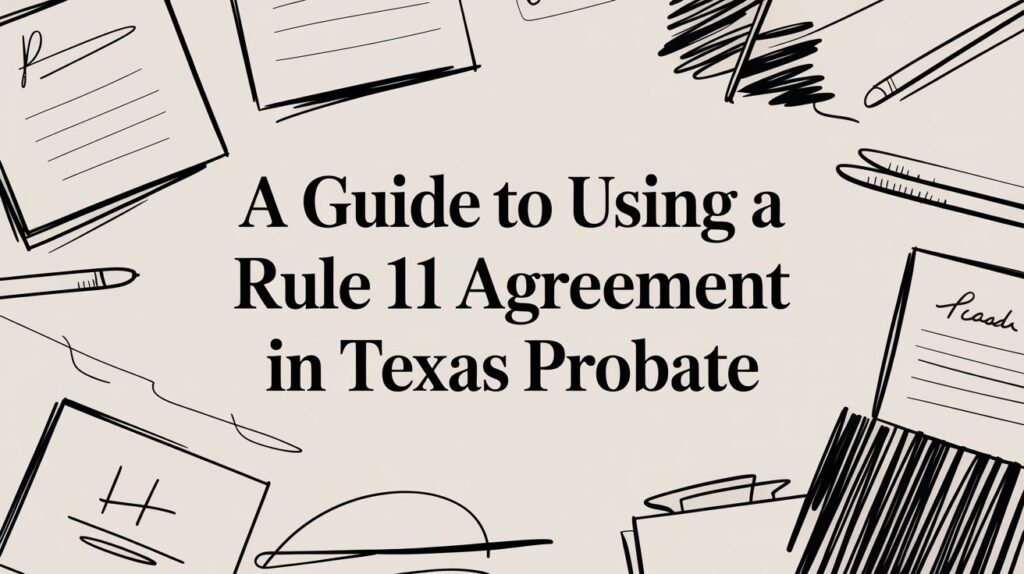Learning how to find probate properties in Texas is one of the most strategic moves you can make as a real estate investor, especially if you’re looking for below-market deals with high equity potential. Unlike traditional property listings, probate properties often come with motivated sellers, less competition, and opportunities that never hit the MLS. But here’s the secret: the goldmine isn’t in a flashy app or an agent’s office—it’s buried in public records and court filings.
If that sounds intimidating, don’t worry. We’re about to break down everything you need to know about identifying, accessing, and understanding probate property opportunities in Texas—step by step. With a storytelling tone and some real-world examples, you’ll see how others have done it and how you can too, even if you’re just getting started.

What Are Probate Properties and Why Are They Valuable?
Before diving into how to find probate properties in Texas, let’s make sure you’re crystal clear on what they are. Probate properties are real estate assets that become part of a legal process after the property owner passes away. If the deceased didn’t leave a living trust—or sometimes even if they did—the property is reviewed, transferred, or sold through probate court.
These properties are often sold because:
- Heirs can’t agree on how to divide them
- The estate needs to pay off debts
- The property has no designated heir
- Beneficiaries live out of state and want to liquidate quickly
As a result, many probate homes are undervalued and need repairs, creating the perfect canvas for investors or homebuyers looking for equity.
Let’s be clear, though: the key isn’t finding probate homes—it’s finding them before everyone else does. And in Texas, that means navigating county-level court records and tapping into probate filings.
Real-Life Example: How Cynthia Found Her First Probate Deal
Take Cynthia, a part-time investor in Houston. She didn’t have a huge marketing budget or a team of agents. What she had was persistence. She started checking Harris County probate court filings online every Monday morning. She’d scroll through the new case listings, jot down case numbers, and request full filings.
In one case, she spotted a modest single-family home where the executor had petitioned the court for permission to sell the property. Cynthia tracked down the executor (whose name and address were in the documents), mailed a professional letter expressing her interest, and two weeks later, they struck a deal—$40,000 under market value.
That’s how you find probate properties in Texas: not by waiting for Zillow to alert you, but by diving into the data most people ignore.
Step One: Understand the Texas Probate System
Texas probate cases are generally filed in the county where the decedent resided at the time of death. That means each county maintains its own probate court docket and case database. While some counties are more tech-savvy than others, the process and structure remain relatively uniform.
Types of Probate in Texas
To fully understand how to find probate properties in Texas, you should first recognize the different types of probate:
- Independent Administration of Estate – The most common, where the executor has broad authority to manage assets without court oversight
- Dependent Administration – Court supervision is required for all major actions, including sales
- Muniment of Title – A streamlined process used when there’s a valid will and no debts
- Heirship Proceedings – Filed when someone dies intestate (without a will)

Each type may involve real property, and knowing which ones usually result in asset sales can sharpen your focus.
Step Two: Where to Start Your Search
If you’re serious about learning how to find probate properties in Texas, the real work begins with locating the records.
1. County Probate Court Websites
Counties like Harris, Travis, Dallas, and Bexar have public online databases. You can search for probate cases by:
- Decedent’s name
- Date filed
- Case type (e.g., “Independent Administration”)
- Attorney or executor
Look for terms like “Application to Probate Will,” “Order Admitting Will,” or “Application for Letters Testamentary.” These are your breadcrumbs.
2. Visit the Probate Clerk’s Office
In smaller or more rural counties, you might need to visit the courthouse in person. Clerks can help you access records and sometimes provide summary sheets that list estates with real property.
Bring a notepad, be polite, and don’t be afraid to ask questions—they’re used to researchers and investors poking around.
3. Use Legal Notice Sections in Local Newspapers
Texas law requires that executors publish notice of probate filings in local newspapers. These “Legal Notices” can be a great source of new leads. Keep an eye out for terms like “Notice to Creditors” or “Estate of [Name].”
This old-school method still works, especially in counties that don’t publish dockets online.
Step Three: Read the Filings Carefully
Now that you’ve found potential probate cases, it’s time to dig deeper. This is where many would-be investors give up. But not you.
What to Look For in Court Documents
- Executor or Administrator’s Name – This is the decision-maker who can sell property
- Petitions to Sell Property – Indicates real estate is likely involved
- Inventory and Appraisement – Lists the estate’s assets, including real estate
- Heirship Affidavits – Helps you identify interested parties
- Addresses of the Property – Gold. This is your lead.
Most filings are public. Some you can download; others you may need to request. You don’t need to be an attorney to read them—just patient.
Step Four: Reach Out to Executors and Attorneys
Learning how to find probate properties in Texas is only half the battle. The other half? Making contact without coming off as opportunistic or predatory.
How to Approach Executors
Executors are often overwhelmed and emotionally drained. That’s why your outreach must be professional, respectful, and focused on helping them.
Example letter:
“Dear [Executor’s Name],
I recently came across the probate filing for the estate of [Decedent’s Name]. I understand this is a difficult time, and I wanted to express my condolences. I work with families who are managing real estate during probate, and if you’re considering selling, I’d be happy to speak with you about options. I can offer a fair cash offer, and I’m familiar with the probate process in your county. Sincerely, [Your Name]”
When to Contact the Probate Attorney
Sometimes, contacting the estate’s attorney is more effective. Attorneys appreciate clear, concise messages. Include the case number, decedent’s name, and your reason for reaching out. Ask if the estate plans to sell real estate and whether you can submit an offer. If the attorney confirms the property is being prepared for sale, you may be among the first to make an offer before it reaches public listing. Building a respectful working relationship with probate attorneys can lead to repeat opportunities and referrals over time.
Persistence pays off, but tact is non-negotiable. Always follow up with professionalism and patience, understanding that probate timelines can vary significantly. The more value you bring to the conversation—like flexibility, quick closings, or help with paperwork—the more likely you’ll be seen as a helpful resource instead of an opportunist.

Step Five: Evaluate the Property and Make an Offer
Once you’ve established a dialogue, it’s time to do what real estate pros do best—evaluate the property and present a solution.
Key Considerations:
- Check property taxes and liens
- Visit the property if possible
- Estimate repair costs
- Compare recent sales nearby
- Prepare a simple, fair offer—ideally with cash terms and a quick close
Probate sellers often prioritize ease over price, especially when there are multiple heirs involved. That’s your edge.
Mistakes to Avoid When Finding Probate Properties in Texas
Many investors rush in without fully grasping how probate works. If you’re committed to learning how to find probate properties in Texas through public records and court filings, steer clear of these common missteps:
- Skipping the paperwork – Always verify that the person you’re dealing with has authority to sell
- Making lowball offers too soon – Build rapport before negotiating
- Not checking title issues – Probate doesn’t automatically clear liens
- Ignoring heirs’ disputes – If the heirs are fighting, proceed with caution
Success in this space isn’t just about finding leads—it’s about navigating the emotional and legal complexity with professionalism.
Tools and Resources to Help Your Search
Don’t reinvent the wheel. Here are tools to help streamline your process:
- County Clerk Websites – For case lookups and document downloads
- PublicData.com – Helpful for background research
- Texas Bar Association Directory – Find probate attorneys
- Deed Records and Appraisal District Sites – Verify ownership and property value
- Title companies – Can help with due diligence once you’re under contract

Final Thoughts: Treat Probate Leads with Respect and Purpose
Finding probate real estate isn’t a hustle—it’s a skill. When you take the time to understand how to find probate properties in Texas through public records and court filings, you gain more than just access to off-market deals. You build trust. You help families during transitions. And yes, you grow your portfolio in ways most investors never will.
It all starts with reading a court file and making a call. From there, you could unlock your next great investment—and maybe even change someone’s life in the process.








